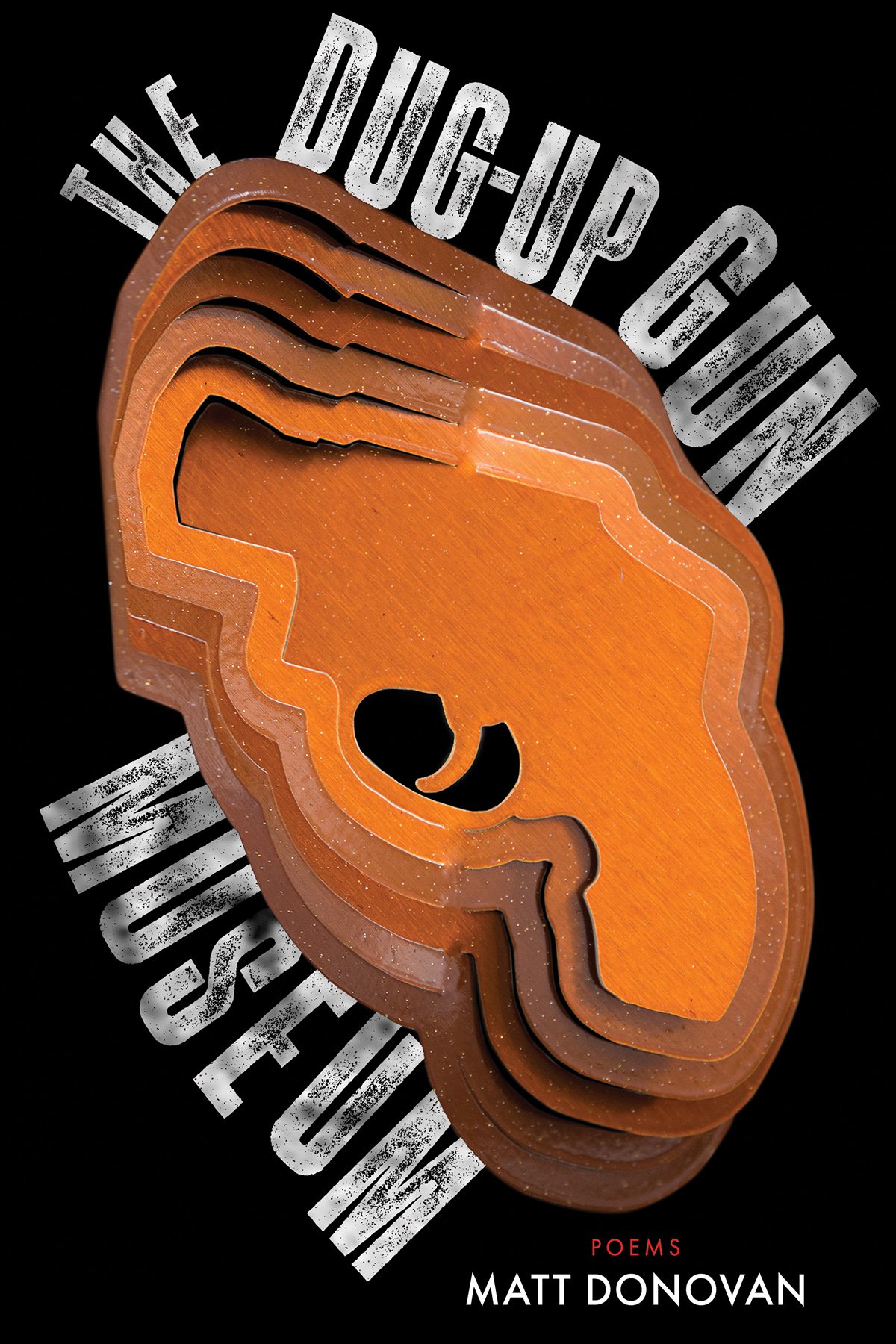In The Dug-Up Gun Museum, Matt Donovan is anthropologist, empath, parent, skeptic, participant-observer, critic, and mourner, as he takes us on a riveting tour (and indictment) of America’s gun culture. These profoundly moving and wildly expansive documentary poems travel through NRA Headquarters, Emergency Rooms, school hallways, memorials, museums, battle reenactments, police test-firing ranges, crime scenes, and historical sites searching for answers to an elusive question: how can this country be as hypervigilant as it is careless when it comes to lives of its citizens? With equal parts curiosity, grief, and rage, Donovan limns a clear-eyed hymn to one of the most pressing national issues of our time.
— Erika Meitner, author of Useless Junk
From 1919-1949 the pulp magazine Western Story published ads in the Missing Department where people wrote in search of vanished spouses, abandoned children, and separated lovers. During the pandemic, artist Ligia Bouton and poet Matt Donovan used Missing Department ads and the pages of Western Story to make erasure poems and drawings that interrogate loss and hope for human connection. Missing Departmentcontains every poem and drawing paired along with each ad that inspired them. Included is a lyric essay by Donovan.
Matt Donovan spins his obsessions—Pompeii, the Pantheon, Rafael’s Transfiguration—into storytelling gold. Donovan’s distinctive vision, gorgeous prose, and curious mind combine brilliantly. A pleasure to read, from start to finish.
— Dinty Moore, author of To Hell with It
Matt Donovan’s essays are haunted, searching, lyrical, and above all dogged in their ability to conjoin personal history with public history… his book is a dazzling performance.
—David Wojahn, author of For the Scribe
Donovan masterly reveals how art elevates what is ruined and captures what is absent. These meditations, which collapse time and geography, bring into poignant relied the nature of the unnameable mind and our complexly vexed humanity. At its heart, this book is an homage to the impenetrable mystery of the sacred.
— Kathleen Graber, author of The River Twice
The amazing achievement in Matt Donovan’s Rapture & the Big Bam is how well he balances the drive to speak intimately with the drive to shape a public (even civic) thought. His ease in following a leading image, trusting entirely that the image will speak far beyond anything he might have planned, makes for an authentic experience of surprise for a reader. His ear and his sense of line are controlled and idiosyncratic, glorious, ranging, and fully in love with discover.
—Lia Purpura, author of All the Fierce Tethers
These ambitious poems aim to encompass a mass of intellectual and cultural bric-a-brac: “let’s begin with macadam, fruit bowls, a Florentine mosaic, / Louie Louie’s three slurred chords, & perhaps for now end there."
— The New Yorker
While eschewing traditional forms, Donovan’s poems are viscerally formal: his lines are echo chambers in which syllables chime and grate against one another, making us constantly aware that we are experiencing something made — not just a recounting of prior experience but an event in language on the page: “A cut, an incision, a gouge.”…Throughout Vellum, Donovan confronts not only the power of art but also its potential uselessness, its beauty inextricable from its unnerving refusal to serve. The book suggests that American poetry remains vigorous in its ability to resist any particular vision of its future.
—James Longenbach, The New York Times Sunday Book Review
Donovan’s “I” is a recorder, questioner, meditator, aesthetic philosopher, wondering citizen. His way of “holding the future” — such as it is — lies in the persistence of the will to make beautiful gestures of ordering in the face of the cruelties his poems witness… The sure grace of Donovan’s syntax, the authority of his descriptive gestures, the exact shaping of stanza — all firmly ally him with the artists who people his pages, from Botticelli to Charlie Chaplin, Zeuxis to Severn, Houdini to Neruda…Donovan’s is a serious, companionable poetry, and his book — as the best art does — harrows and consoles at once.
—Mark Doty, author of Deep Lane, from the introduction to Vellum




